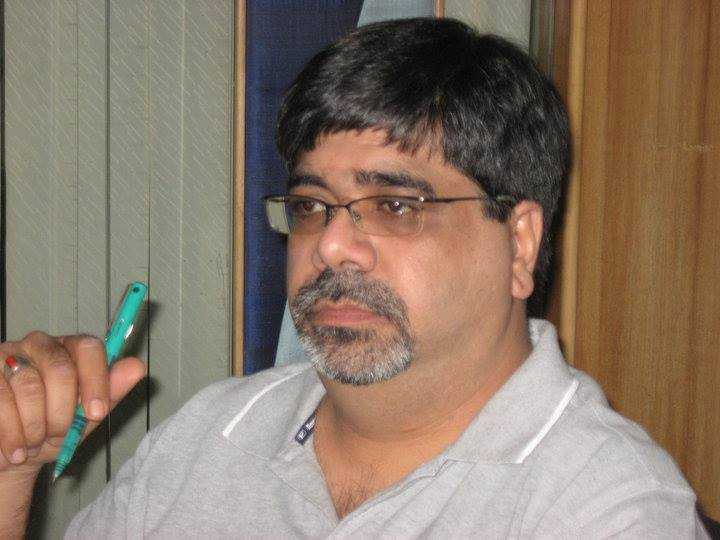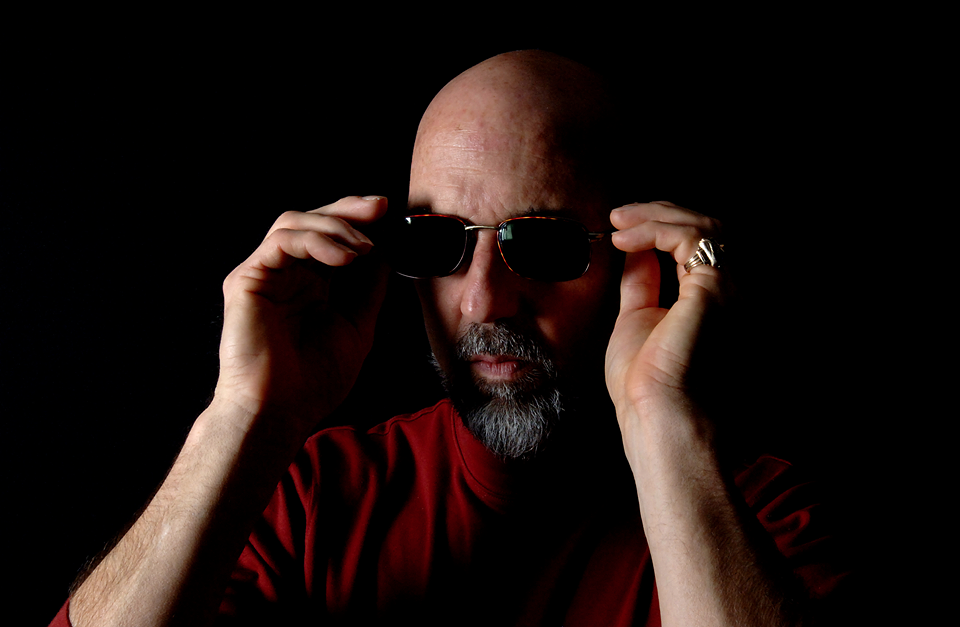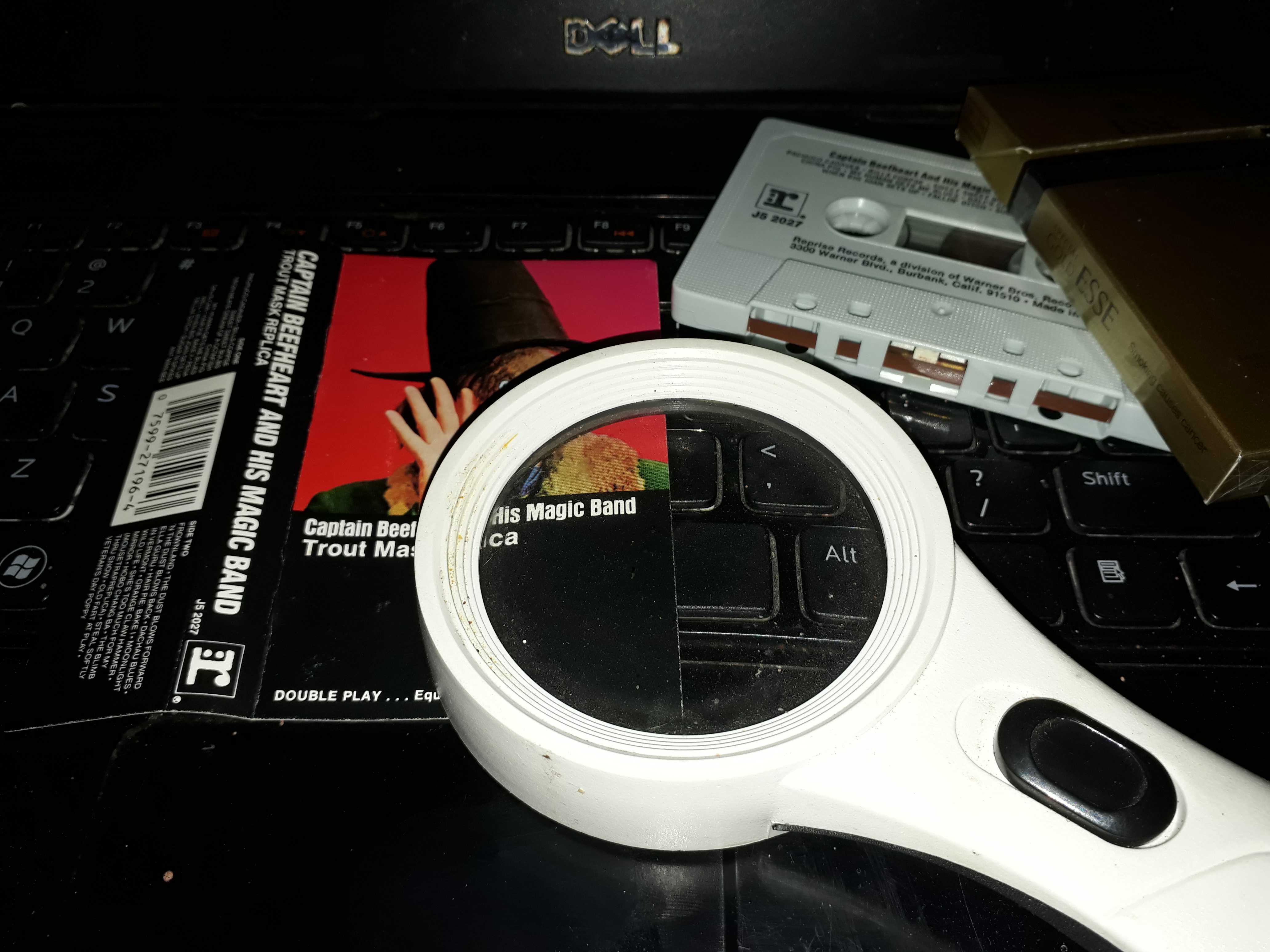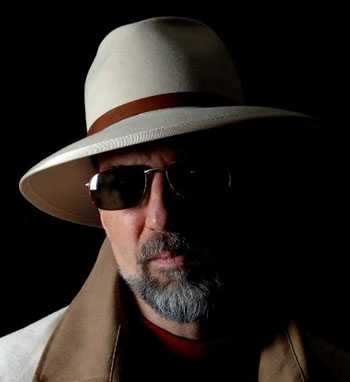News Grille
XV.VI.XX
Legendary John ‘Drumbo’ French
An fnbworld EXCLUSIVE Interview
Don's 'Samurai' Drummer!

By Ravi V. Chhabra

“I read a book about Patty Hearst, when she was captured by members of the SLA. They kept her chained in a little room, maybe a closet and just kept talking the same stuff over and over and over again. It’s a form of conditioning and it slowly changes you. It’s sort of like the way the media brainwashes people. Don Van Vliet could talk for hours, for days. So, hearing this sort of one-sided philosophy from someone who was so much older made a deep impression on me”.

Photo credit: Ravi V. Chhabra. Copyright; Right Impact Media Inc.
Does he need an introduction? - certainly, not for Don Vav Vliet a.k.a Captain Beefheart and the Magic Band’s cult followers. So, I get straight on to asking John ‘Drumbo’ French (JDF)) a virtuosic multi-instrumentalist-musician-vocalist. This interview must be a high-point for me being a music junkie, collector and critic for over three decades. I have heard, read and watched most of the stuff out there (including the documentary-series about Beefheart). John French’s Samurai-swordsman-like drums-bashing, especially on cymbals is the only way I can describe his mastery, notably in few of my favourite albums that haunt me each time I listen to them – Shiny Beast and Trout Mask Replica. Fortunately, I own these in first edition tapes (cassettes) among others.
Ravi V. Chhabra: If you were to meet Don Van Vliet just once as in flashback what would you like to say to him even if it is at the risk of getting booted?

John Drumbo French: When you’re dealing with such a complex set of issues, it’s difficult to boil it all down to one issue. I think I’d say, “Treat your friends like you’d like them to treat you.” “Get off your high horse and quit acting as though we all ‘owe’ you something.”
Ravi V. Chhabra: It does seem you had a love-hate for him...
John Drumbo French: A fact that I worked with him five times and it never changed. I liken it to water seeking it’s own level. When you worked with Don, everything started out fine, but then you noticed that the room was filling with water, just a wet floor at first, but eventually you’d be choking to get a breath and treading water inches from the ceiling. There was a creeping control that just couldn’t be contained and was always prevalent. I think if I boiled it down to one word, it would be “NO!” That was the one word he couldn’t stand hearing.
Ravi V. Chhabra: What made you guys stick to him with an almost fierce loyalty despite all odds?
John Drumbo French: I can only speak for myself. Two elements: Stockholm syndrome. I read a book about Patty Hearst, when she was captured by members of the SLA. They kept her chained in a little room, maybe a closet, and just kept talking the same stuff over and over and over again. It’s a form of conditioning and it slowly changes you. It’s sort of like the way the media brainwashes people. And, the next - Don could do was talk for hours and for days. So, hearing this sort of one-sided philosophy from someone who was so much older made a deep impression on me.
Ravi V. Chhabra: How would you relate to him musically?
John Drumbo French: Many of the lyrics in his music were about treating the earth with respect, and the unfair practices of man, that war was bad – these were good, valid points. I didn’t separate the rants from the lyrics for a long time, thinking that the rants must be valid because the lyrics were and because they came from the same source. There was, however, a small refuge; a part of me that never bought in to his constant rants and rave(s).
Ravi V. Chhabra: What about his approach to music vis-a-vis you?
John Drumbo French: Well, the other side was the music. I loved putting that music together. I knew it was never going to make me any money but it was a mind puzzle for me to solve. I loved the idea that we were breaking new ground and surely, breaking rules. The music, in a sense, reflected the fact that people are really not in harmony at all. Hundreds of people gathered in an area and most are thinking completely dissonant thoughts from each other with themselves. The musicians were playing parts that often did not interlock rhythmically, nor were in the same key on occasion. It created a swirling sensation, as at times there was nothing to actually focus upon and that causes a sort of surrender.
Ravi V. Chhabra: Did you contemplate Don would be remembered both for his music and art?
John Drumbo French: Soon after he married Jan, I could see that her influence was to turn him into a painter; a visual artist. She was a recluse, and so was he. Neither of them really liked dealing with a band or musicians. He was more outgoing with fans, but that was part of his narcissism. He would talk with someone all night long and be totally useless the next day as long as it was an adoring fan. It was like a drug to him.
Ravi V. Chhabra: What is the one non-musical good part/human side of him that you can bless him for?
John Drumbo French: Well, he could occasionally be very re-assuring and build people up and bolstering their confidence. Also, the next day, he could shred you like a broom and make you feel you were the worst person in the world. He did have a kindness for animals – dogs mostly. He had a dog named Cindy, a poodle, and he was always very kind to the dog. She used to hide her bones in my bed. To Don, this was a sign that I must be OK… I mean, “If the dog likes someone, he must have some redeeming value…”.
Ravi V. Chhabra: Which instrument do you think Don played well?
John Drumbo French: The harmonica - you can’t play a bad note on a harp. He could have been a good drummer because he had a great sense of rhythm. A lot of people liked his noise sax, but I thought it was 99 per cent crap. I did like certain things he recorded.
Ravi V. Chhabra: An opinion/example of his ‘discordent’ yet superb, sudden and intermittent sax outpouring?
John Drumbo French: The end of ‘Ant-Man-Bee’ (composition) when it’s just the soprano is really nice. I also love the darkness of the bass clarinet on ‘Dachau Blues’. He played better in the studio than on stage in my estimation. I think fear caused him to play more sporadic and less musical. I have been told by sax players that he really did push a lot of air through the horn and got a great tone, but it’s a matter of taste, I suppose, more than anything else. Also, the contrast of us disciplining ourselves to play this technically-challenging music and then have it sprayed over with sax foam was a little disconcerting. The only time I recall him ever actually playing an actual “part” was the harmonica progression on Bat Chain Puller (from the original version).
Ravi V. Chhabra: If you were to describe both your schoolmates (Antelope Valley) Frank Zappa and Beefheart in a few sentences what would it be?
“I respected Frank as a hard-working guy. I also related to him, because at the time, I was transcribing mostly all of Trout Mask Replica’s music into music notation and I watched Frank notating his music for the Mothers. I knew how much work that was. It was also inspiring to me. I began to love the whole concept of written music, even down to the smell of the ink and paper”.
John Drumbo French: Let me make it clear that they weren’t my schoolmates. I graduated eight years after them. I was never around them until I joined the band and then only Don up until the months before Trout Mask Replica, and later, when I worked on Bat Chain Puller. Don was more instinctive, Frank was more cerebral. By contrast, Zappa could write a complex line for his band and play it right along with them. Don had a more ragged approach to music and really didn’t know much about the actual process of making something playable. For instance, he couldn’t name a single chord and didn’t know where middle C was on the piano.
Ravi V.Chhabra: Your articulation of Frank Zappa?
John Drumbo French: Frank had studied music; he understood chord changes and harmony and could compose and produce written music. He was a far harder worker than Don. I think Frank appreciated and understood his musicians more and he paid them! He once told Don “You have a selfish view of the universe,” and I believe he was accurate in that statement. Frank was quite prolific. In the last few albums, Don was pulling out old stuff from the past. Frank was a workaholic. Don was primarily lazy, although he drew a lot of art all the time. He wouldn’t rehearse with the band, choosing to sit and draw while the band rehearsed. Frank was however, addicted to nicotine and caffeine, which is primarily why he died so young. It was really a shame. I heard about his illness first in the late Eighties, before it was generally known.
Ravi V. Chhabra: Did you interact with Frank Zappa often, what was it like?
John Drumbo French: Not a lot, but enough to know that I liked him as a person better than Don. I could never have sang that potty-humor he wrote lyrically, but I respected him as a hard-working guy. I also related to him because, at the time, I was transcribing mostly all of Trout Mask Replica’s music into music notation and I watched Frank notating his music for the Mothers. I knew how much work that was. It was also inspiring to me. I began to love the whole concept of written music, even down to the smell of the ink and paper.
Ravi V.Chhabra: A particular album that you kind of enjoyed the most while working with Don. Reasons?
John Drumbo French: ‘Doc at the Radar Station’, primarily because by that time, Don wasn’t constantly browbeating his musicians. Plus, Tepper and Feldman were great guys for the most part. I got along OK with Williams but I sort of avoided getting to close to him. He was a bit too whiney. I remember one night while rehearsing Brick Bats,m I stopped the band and mentioned that one of the rhythms in the center section was wrong. I actually had my cassette running as he went on and on about how I should play it like them rather than them all having to learn to play it “like me.” I simply said: no problem but how does Don want it played? Fowler chimed in that Don wouldn’t know the difference. I think Feldman just asked Don and Don said, “Play it like it’s written.”
Ravi V. Chhabra: Do you by any chance possess any stuff by Beefheart; sketches, musical instruments or memorabilia?
John Drumbo French: No, I got rid of it all with the exception of an African Drum Don gave me that’s about a foot tall. I know people who are collectors and hold onto everything: all their old blues records, notes or drawings from Don, tour itineraries. I’ve never been that way. I’ve always had the philosophy that you can’t grow by hanging onto the past.
Ravi V. Chhabra: Are you in touch with any of the Magic Band guys?
John Drumbo French: Rockette, Zoot, Ed and Jeff Cotton just recently. For years, Jeff avoided me then suddenly he started communicating with me, Doug Moon occasionally; Alex until his tragic passing and with Vic Mortensen (original drummer), also with Eric Feldman, Gary Lucas and Denny Walley sometimes. The guys I’m closest to are the TMR guys and Artie Tripp. Harkleroad is very stand-offish but I don’t take it personally. Rockette and I speak about once a month.
Ravi V. Chhabra: When did you last speak with his wife Janet. Did you have a good equation with her?
John Drumbo French: Jan was a sweet person to me but I haven’t spoken to her since 1980. I often felt sorry for her for the verbal abuse that Don occasionally served in her direction. She married Don when she was nineteen and I always thought of her as a bit of a captive. Her parents lived as I recall, in Baldwin Hills in the North San Fernando Valley. Her father, as Don often would say, was “The superintendent of the Beverly Hills School System”. He was intimidated by his father-in-law’s standing. Jan had a brother who was tragically killed in a car accident in late seventies or early eighties. I believe he was actually struck by a vehicle while on the side of the road behind his car.
Ravi V. Chhabra: Any Project(s) in the pipeline as you have been not only close to the band and the goings-on but a huge driving force and done many gigs all over to ecstatic audiences?
John Drumbo French: What I want to do now is sort of tie up loose ends. I’m 71, and a lot of musicians are dropping like flies who are my age or even younger. So, rather than pretend I’m going to live forever, I’m making up a sort of ‘bucket list’ of things I want to finish. The recordings I want to release (2 MB Live albums and an original project). I want to write another book, mostly like a scrapbook of clippings and photos from magazines. Light stuff and memories. I’d like to do some orchestral work and some drum videos that explain my style. I really don’t want to do any more low-budget tours, sitting in a crowded van and loading in and out because we have no roadies. Right now, I’m making lists of things to sell and things to buy with the money that will be needed to complete the tasks.
Ravi V. Chhabra: Do you practice at home some of the musical instruments as you are a master player with verve (including your voice)?
John Drumbo French: When I actually get the time. The problem is I live in a high maintenance house, so I’m constantly working out there. I’m not one of these guys that goes in the studio two hours a day and practices. That is just so boring. I usually practice when I’m doing a project and just naturally flow into whatever I’m doing at the time. I really want to do more home-recordings. I definitely don’t want to tour or deal with musicians any more (the business side of that is the WORST).
_______________
https://en.wikipedia.org/wiki/John_French_(musician)